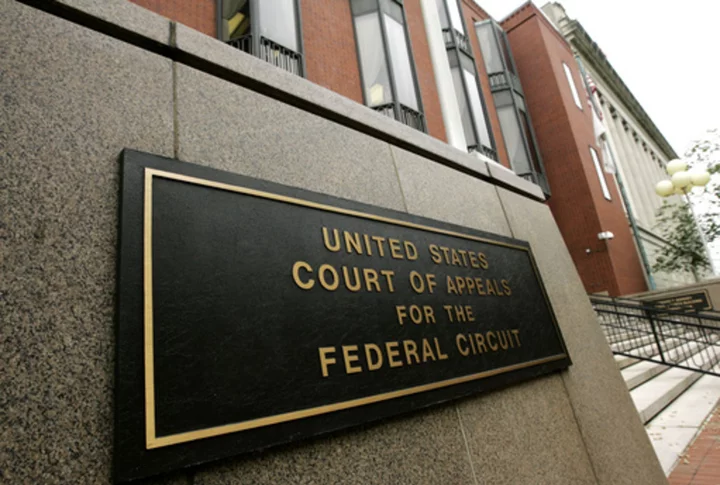
A 96-year-old federal judge is barred from hearing cases in a bitter fight over her mental fitness
A 96-year-old U.S. federal appeals court judge has been barred from hearing cases for a year after a judicial panel said she refused to undergo medical testing over concerns she's no longer mentally fit to serve on the bench
1970-01-01 08:00

Kevin Costner and wife Christine Baumgartner reach divorce settlement and avoid trial
Kevin Costner and his wife of nearly 19 years, Christine Baumgartner, have reached a settlement in their divorce
1970-01-01 08:00

Writers and actors are missing new shows and movies as much as we are
Being rested has never been more stressful for writer and producer Felicia Pride. Pride, whose work includes credits on shows
1970-01-01 08:00

Ukraine, Russia and the tense U.N. encounter that almost happened — but didn't
It was a moment the diplomatic world was watching for — but didn’t get
1970-01-01 08:00

Rumble: What is the YouTube alternative Russell Brand is using to post videos?
Russell Brand’s punishment by YouTube has drawn attention to another, alternative video sharing site: Rumble. While Brand has not been banned from YouTube in the wake of recent allegations, the site did say that it would remove the ability to monetise his videos there through advertising. In the wake of that recent announcement, some – including ex-Fox News presenter Dan Bongino, who is both a shareholder in the platform and one of its biggest stars – have suggested that Brand could instead take his videos to that site. He would be just the latest alternative creator, many of whom are conservatives who have run into moderation issues on other more mainstream sites, to focus on the platform. Already, even as he was able to use YouTube as normal, he has gathered a sizeable following on Rumble: Brand has 1.4 million followers, nearly as many as the 2.3 million he has on TikTok. Rumble began in 2013, and for a long time operated quietly as yet another video-sharing site that most of the world hadn’t heard of; Rumble says that its early years were about “empowering [...] small content creators”. It wasn’t until around 2020 that the site became the rising and alternative centre that it has become today. That happened largely because of controversies elsewhere, that pushed video creators and others off more traditional sites, rather than the pull of Rumble. But Rumble has been ready to catch those who have been forced away from the mainstream, with the promise of more relaxed content moderation. In that way it is much like other “alt tech” sites that spring up in response to restrictions on more mainstream platforms. Just as Donald Trump’s Truth Social aimed to offer an alternative to Twitter, for instance, so does Rumble try and challenge YouTube. What is Rumble? In practice, Rumble is much the same as YouTube: it features a search engine to find videos, a window to watch them in, and suggestions of what videos to go next. Its features are not quite as advanced or well-designed as its Google-owned rival, and the video player is more bare-bones, but it is nonetheless largely similar. It is the content moderation that really marks it out from other video platforms. That is markedly different from other sites. Rumble says that it is focused on working “to protect a free and open internet” and “support diverse opinions, authentic expression, and the need for open dialogue”. Its founder, Chris Pavlovski, has said that it is intended to be “immune to cancel culture” and avoid censorship. In reality, that has meant that it has become a home for those who have been banned for violating the moderation rules of other sites. Often, for example, that is because they have violated policies on coronavirus misinformation. Indeed, the pandemic was a particularly fruitful time for the site, apparently as users flocked to watch videos from those banned creators. Rumble says 2020 saw “order of magnitude increases” in its key metrics, and soon after it received investment from conservative venture capitalist Peter Thiel. Who else is on Rumble? Even though the company itself stresses that it aims to be neutral and simply resisting censorship, all of the biggest channels on Rumble are run by those on the right. The site gained particular prominence when it became the home to Andrew Tate, after he was blocked by other platforms, and he now runs a “TateSpeech” channel that has 1.61 million followers. Donald Trump also has a popular channel, and so does his son. But not all of the site’s popular users are on the right, or use it for explicitly political content. The streamer IShowSpeed has a show on the platform, for instance, after he was banned from Twitch, apparently for making sexually inappropriate comments on a stream. The site’s viewers also seem largely to be on the right. About three-quarters of those who use it for news identify as Republicans or lean towards the party, according to the Pew Research Center, in a study published late last year. What are the rules on Rumble? Rumble may be best known for its relaxed content moderation, but it does ban some kinds of behaviour. Today, its content policy is mostly aimed at banning stolen content, as well as video that are pornographic, promote illegal acts, and some other restrictions. Last year, it began a process of working on a new moderation process that aimed to protect users people from harassment. They suggested that the site should ban stalking, for instance, and for attacking other users based on legally protected characteristics. How does Rumble make money? Just like YouTube, Rumble makes money through showing ads before and during videos. And, just like YouTube, it offers a revenue sharing programme that gives some of the money made through those ads back to the creators whose videos they were shown on. Rumble also bought a platform called Locals, in 2021, which allows people to donate to people in return for exclusive content, in a similar way to the more popular Patreon. Russell Brand highlights his Locals account in his Rumble videos. Read More BBC reviews Russell Brand’s time at corporation as YouTube demonetises content How does Russell Brand make money online? Google’s powerful ‘Bard’ AI can now get into your email Google’s powerful ‘Bard’ AI can now get into your email Elon Musk recruiting humans to trial brain implant Starship rocket launch window revealed by FAA
1970-01-01 08:00

The Fifth Down: 2023 is the dawn of a new era for quarterbacks
In this week's edition of The Fifth Down, Kinnu Singh discusses the dawn of a new era for NFL quarterbacks and how prizing mobility has limited the San Francisco 49ers. Plus, the power rankings and preseason prediction for all 32 NFL teams.
1970-01-01 08:00

'Donyale Luna: Supermodel' shines a light on the first Black model to grace cover of Vogue
“Donyale Luna: Supermodel," a documentary streaming on Max, offers insight into how the first Black model to grace the covers of Harper's Bazaar and Vogue went largely unknown for years after her death
1970-01-01 08:00
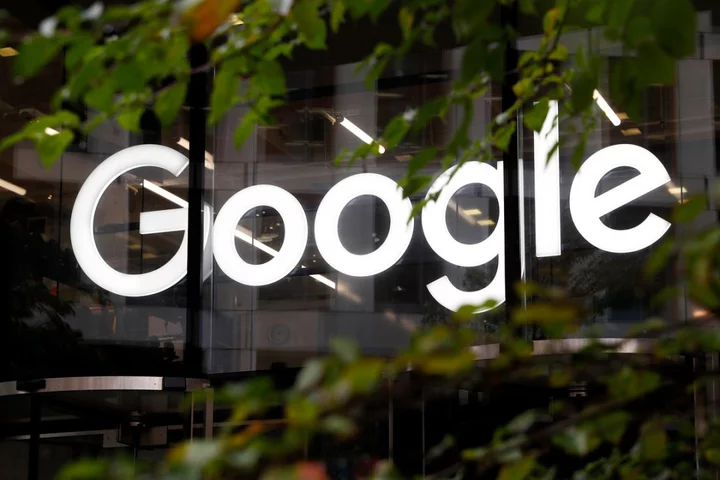
Google’s powerful ‘Bard’ AI chatbot can now get into your email
Google’s Bard, its powerful AI chatbot, can now get into people’s emails and other Google services. The tool has been linked with Google platforms such as Gmail, Maps and YouTube so that it can provide richer and more useful responses to queries, the company said. Users can ask the chatbot to automate the work of scheduling meetings through Gmail, for instance. Google launched Bard earlier this year, seemingly as a response to the huge success of other generative artificial intelligence platforms, such as ChatGPT. It offers many of the same features as that competitor, allowing users to chat in natural language and receive words and information in reply. The company has now announced a major update to the program, called Bard Extensions, which will allow users to link other Google services to collaborate with Bard to provide a response to a prompt - for example, when asking Bard to help plan a holiday, users can ask Bard to get the dates that work for family members from Gmail, use Google Maps to get directions to the airport and find YouTube videos to watch about the best things to do at the destination. It said the update made Bard “the most capable” version of the program so far and would help more people use the app to collaborate. The tech giant said the update would have a strong focus on user privacy, with users required to actively give permission to Bard to access their Googleservices, and any content lifted would not be reviewable by a human unless the user specifically asked Bard to flag it for review. In a further expansion of the chatbot, Google said it would now also enable users to double-check the responses they receive from Bard using a new “Google it” button, which will check the response against linked Google search results and highlight passages it is confident about the validity of, as well as those where it found differing results. Some experts have raised concerns about the possible spread of misinformation within generative AI platforms, warning some information is being presented to users in an authoritative way when it may be based on inaccurate or outdated information used to train such chatbots. A report by the UK’s Competition and Markets Authority (CMA) published on Monday which looked into the potential impact of the AI market noted that without proper guiding principles, people and businesses could be harmed through exposure to significant levels of misinformation and AI-enabled fraud. In a blog post on the updates to Bard, Google‘s director for product management of Bard, Yury Pinsky, said: “One of the biggest benefits of Bard, an experiment to collaborate with generative AI, is that it can tailor its responses to exactly what you need. “For instance, you could ask Bard to start a trip planning doc for you and your friends, draft up your online marketplace listing, or help explain a science topic to your kids. And now Bard is getting even better at customising its responses so you can easily bring your ideas to life. “Today we’re launching Bard Extensions in English, a completely new way to interact and collaborate with Bard. With Extensions, Bard can find and show you relevant information from the Google tools you use every day - like Gmail, Docs, Drive, Maps, YouTube, and Google Flights and hotels - even when the information you need is across multiple apps and services.” Elsewhere in the update, Google also confirmed that when a link to a Bard conversation is shared online, others will be able to click on that link and continue the same conversation themselves. Read More BBC reviews Russell Brand’s time at corporation as YouTube demonetises content Google announces huge breakthrough step in finding genes that cause disease BBC removes some Russell Brand content as monetisation suspended on YouTube Google Bard can now link to Gmail and other apps to help with responses Long-form video content is here to stay, says YouTube UK boss The most important tech trial in a generation is about to begin
1970-01-01 08:00

FTC nominees vow to combat deceptive AI practices
By Diane Bartz WASHINGTON The deceptive use of artificial intelligence should be a priority for the Federal Trade
1970-01-01 08:00
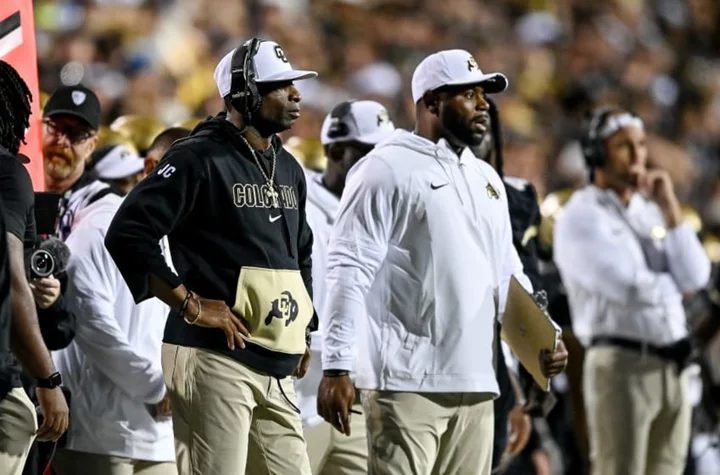
Deion Sanders adding NFL Hall of Famer to Colorado coaching staff in 2024
Deion Sanders predicted that Pro Football Hall of Famer Warren Sapp would join his coaching staff, and the ex-defensive tackle is open to the move.
1970-01-01 08:00
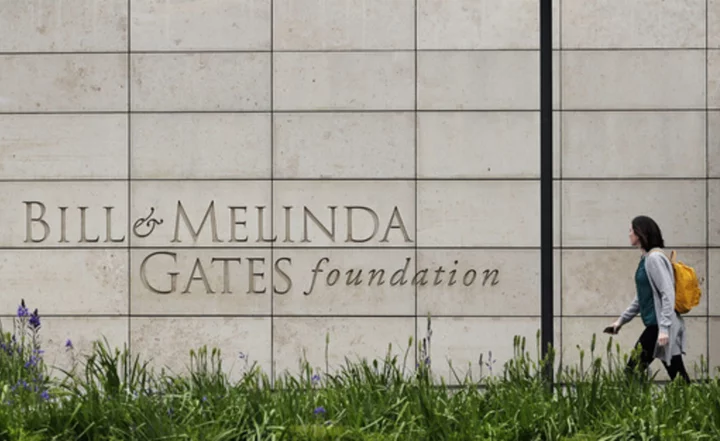
Gates Foundation commits $200 million to pay for medical supplies, contraception
The Bill & Melinda Gates Foundation pledged $200 million to help save the lives of mothers and children during child birth
1970-01-01 08:00
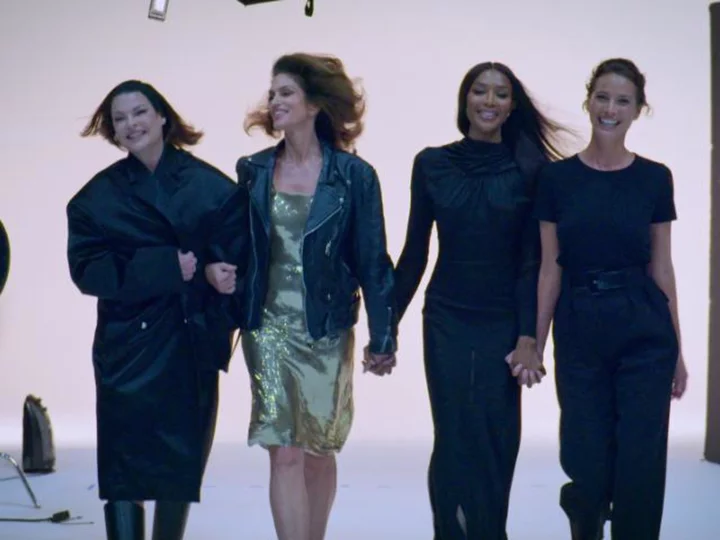
'The Super Models' takes a few too many detours in its walk down memory lane
Nostalgia only goes so far with "The Super Models," a four-part Apple TV+ docuseries as glossy as a high-end fashion magazine of yore, and often as slim as one from the Internet age. Naomi Campbell, Cindy Crawford, Linda Evangelista and Christy Turlington Burns lead this strut down memory lane, punctuated by occasional highlights but ultimately more celebratory than revelatory.
1970-01-01 08:00
